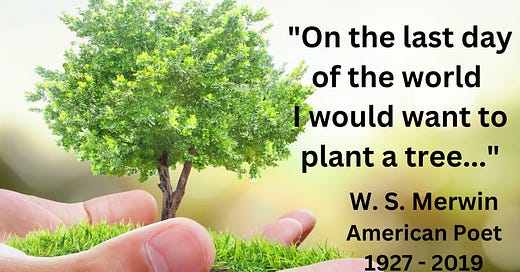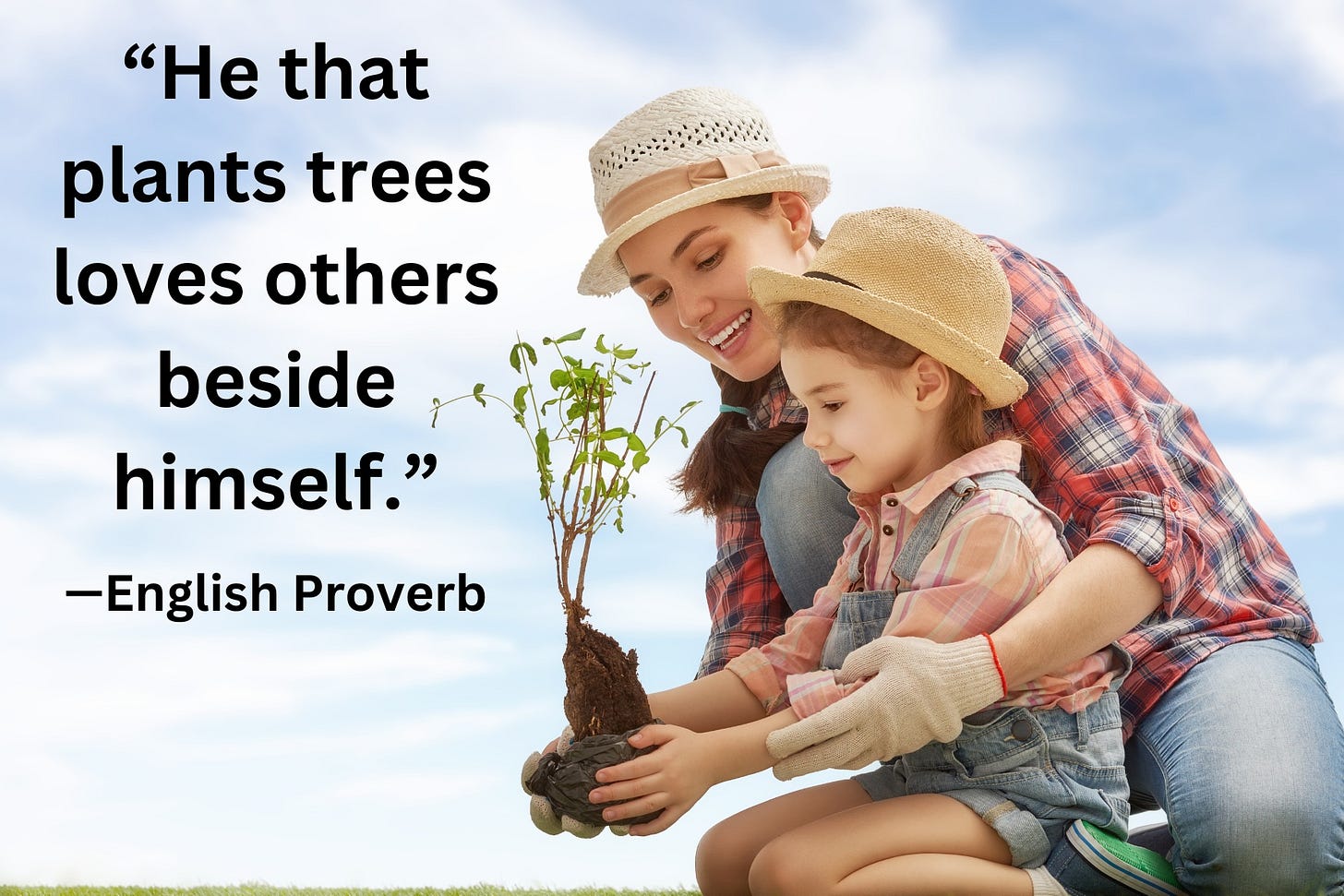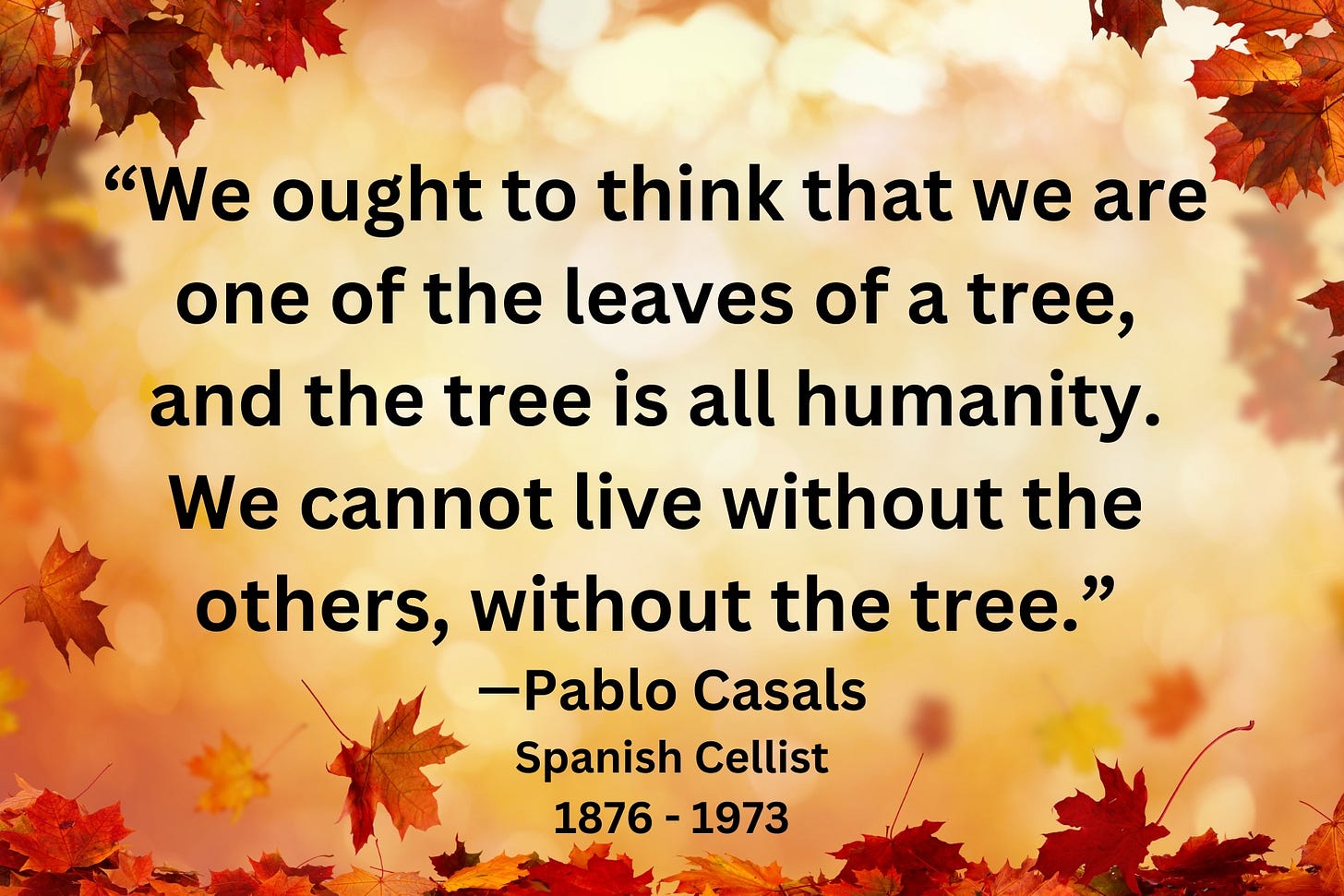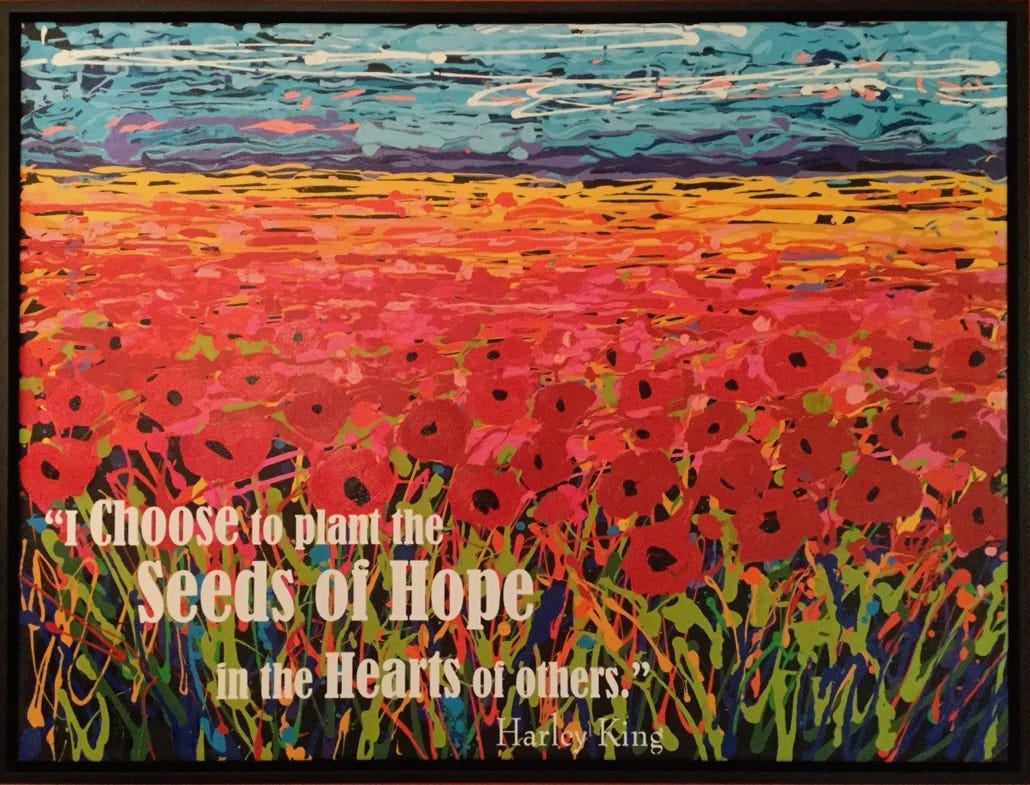Issue #34
From time to time, people have predicted the end of the world, and their followers have given up their worldly goods and waited — only to find they waited in vain. Yes, the world as we know it will end one day. But none of us now living will be here to see it. In the past, civilizations have come and gone. Think Mayan, Aztec, Egyptian, Greek, Roman, and Chinese. One day, our civilization will also pass into the dustbin of history.
And even the animals and plants come and go. Remember the dinosaurs? The human animal, too, will disappear from this earth, and a new species will appear. But don't fear; neither you nor your children or grandchildren will be here to witness it.
So if, by some freak accident, you had the opportunity to be on this earth on the last day before the destruction of the planet, what would you do? Would you plant a tree, as Merwin suggests? Talk about optimism in the face of disaster.
Over the last 40 years of his life, Merwin, who lived in Hawaii, planted over 4,000 trees on 19 acres once considered a wasteland. He planted 850 different species of trees.
This quote is from the opening lines of a poem called Place. If you would like to read the entire poem, please go here. If you'd like to listen to me read the poem, please click below.
In the spring of 1986, my family and I lived in Noblesville, Indiana. We had bought our first house when we moved to town from Texas a year earlier. I celebrated my 37th birthday just a few weeks before my boss fired me. I knew in my heart that we would have to move again and say goodbye to our new home.
While I spent my weekdays finding possible jobs, making phone calls, and sending out resumes, I spent my weekends with family. One weekend, we stopped at a nursery and bought a tree to plant in our backyard.
I have tried to live by a simple philosophy: “Leave the world better than you found it.” Planting the tree was my attempt at leaving the house better than when we found it. A short time later, our home sold, I found a job, and we moved to Minneapolis, Minnesota. While we did not see the tree grow, I know that the people who moved into the house enjoyed looking out the kitchen window and seeing it.
We now live in Ohio and have planted over 50 trees and bushes in our yard over the last 35 years. We have also remodeled and doubled the size of our house. When we sell this house sometime in the future, I know we will have left it better than we found it.
What are you doing to leave the world a better place? If you were to quit your job tomorrow, would you leave the company better than you found it? Are the people you work with better off because they have known you?
Pablo Casals uses a metaphor to help us understand that we are all part of the same family tree. We are connected to the people who have come before us and those who will come later.
A tree with only a few leaves would be very bare. We cannot live in the world by ourselves. We need our fellow humans, our fellow leaves. We need the tree with all its branches, trunk, and roots. We would not be alive without our roots and the sap running through the branches.
Every spring brings a new generation of leaves to replace the autumn leaves. The cycle of humanity continues.








Insightful. I like the metaphor of a tree with few leaves.